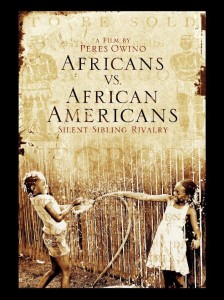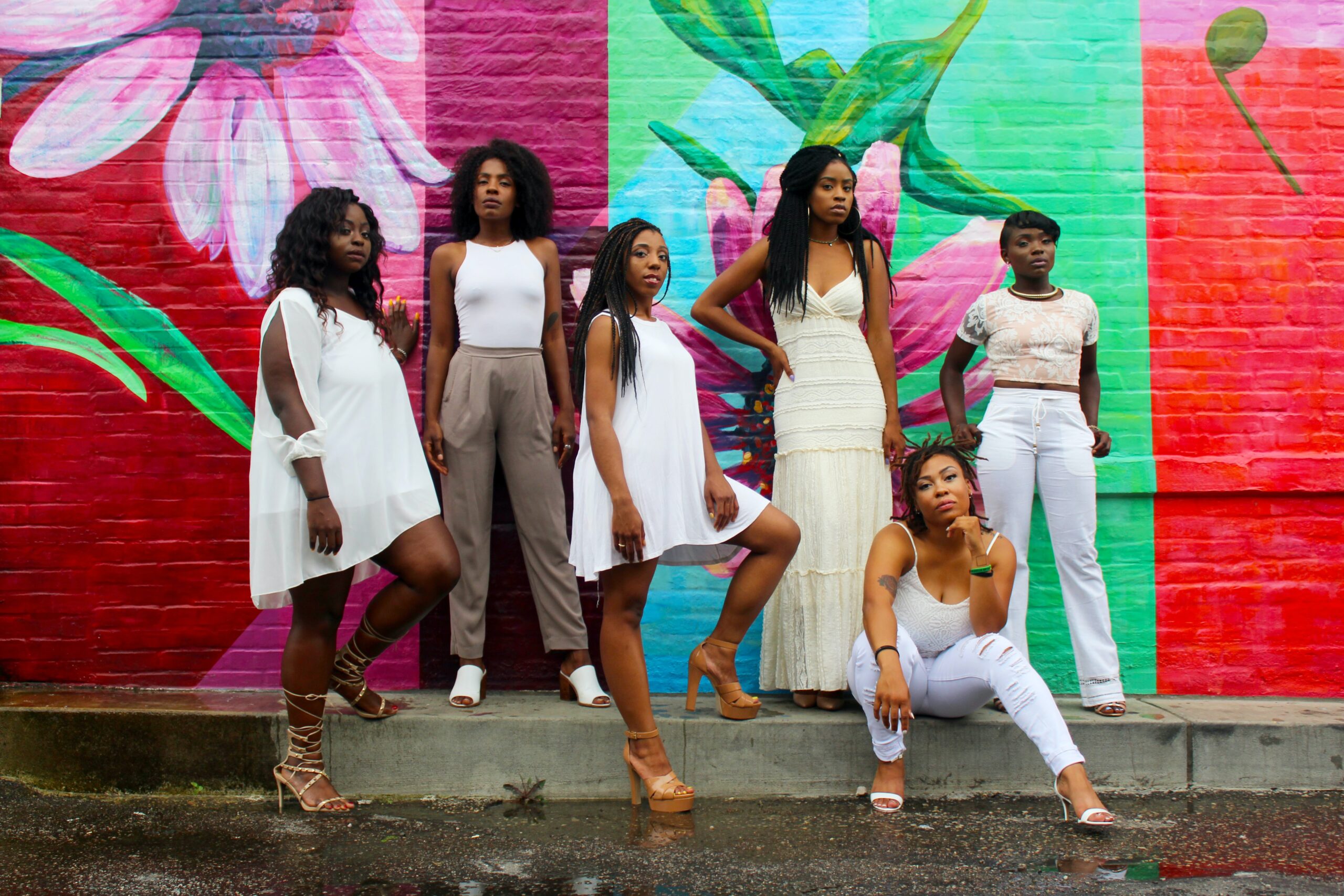Kenyan-born Director, Peres Owino, tackles the controversial fact that Africans and African-Americans are creating a division amongst us based on fear and misconception. The ground-breaking and compelling documentary, Bound: Africans vs. African Americans, was featured at the 23rd Annual Pan African Film Festival and follows two metaphorical brothers. One brother disappears and was never found, but one day in a far-away land the daughter of one brother walks past the daughter of the other, not knowing their connection. And this is where we see parallels between the daughters and the current relationship between Africans and African-Americans; two relatives, living and working side by side, yet not lifting their eyes to really see each other.
The catalyst for the film was Owino’s realization that when she moved to the U.S. she lived in a predominately Black neighborhood, yet didn’t know any of her neighbors. What was making her close off her social-sphere? Fear of the unknown.
in a predominately Black neighborhood, yet didn’t know any of her neighbors. What was making her close off her social-sphere? Fear of the unknown.
The simplistic cinematography and solemn pace aided in highlighting the gravity of the division between the groups. The lighting created a chilly environment, damp with the tears of longing and self-discovery. Moving between the color of the artistic metaphorical scenes and the black and white treatment of the panel discussion and one-on-one interviews, the focus is put on the raw sharing of stories and attitudes.
One of the most controversial moments of the film was when panelists read aloud passages from the Willie Lynch Letter and Making of a Slave . The line “You’ve got the nigger woman out front and the nigger man behind and scared. This is a perfect situation of sound sleep and economics” drew gasps from the audience and it made me really think about the strategic and purposeful breaking of the African psyche, giving birth to the arrested emotional and psychological development of African-Americans.
Several thought provoking interviews are peppered throughout the film. Notably that of Dr. Joy Angela DeGruy, author of Post Traumatic Slave Syndrome. She calls our attention to the multiple traumas suffered over several hundred years by slaves and its effect on subsequent generations. Did slaves adapt without stress related illness? It is highly unlikely, so generation after generation is born into this dysfunction. The behavior of care-takers become modeled behavior in kids “and then after a while it just gets woven into the fabric of things…and guess what we call it now, culture.”
Colonization forced Africans to work for very little pay on sugar cane, cotton and coffee plantations and is eerily the same fate that Africans in the Americas faced. Both suffered the loss of their name, language and God. Speaking on his experience as a child in Zimbabwe, Dr. Munashe Furusa, explains how Christianity devalues native traditions and religions through missionary schools. “No one in Africa can be successful without knowing about the western world, but westerners can be successful without knowing African history,” says Dr. Furusa.
In the end the film shines a bright light on the fact that we have more in common than we tend to think. Owino encourages open and honest talks about issues that plague the African Diaspora. One observation that was sad to me is that there were very few brothers and sisters from the continent in attendance. During the Q&A a hand full of brothers and sisters from the continent raised their hands when asked. The film’s participants offer solutions through organizations like the African Artists Association and the Finaza Foundation and the celebrating of Kwanzaa. Bound: Africans vs. African Americans is an eye-opener and a definite must see.
